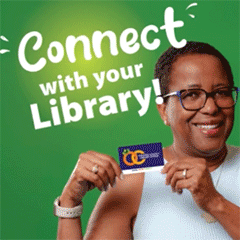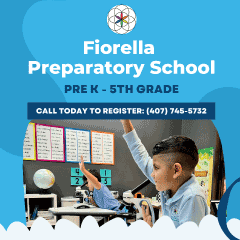Montessori School of Celebration
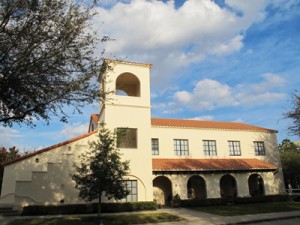 The Montessori School of Celebration is nestled among the homes in the South Village of Celebration. This did not come about by accident. In 1999, when Karen Simon and Helen DeVere founded the school, every detail was intentional. “Creating an authentic Montessori school calls for a safe, home-like atmosphere to foster a sense of belonging for children and their parents. We were and we continue to be committed to creating and maintaining this warm and welcoming environment, in which children and adults feel acknowledged and celebrated and where a culture of partnership, kindness and respect is cultivated on an ongoing basis,” Karen said proudly.
The Montessori School of Celebration is nestled among the homes in the South Village of Celebration. This did not come about by accident. In 1999, when Karen Simon and Helen DeVere founded the school, every detail was intentional. “Creating an authentic Montessori school calls for a safe, home-like atmosphere to foster a sense of belonging for children and their parents. We were and we continue to be committed to creating and maintaining this warm and welcoming environment, in which children and adults feel acknowledged and celebrated and where a culture of partnership, kindness and respect is cultivated on an ongoing basis,” Karen said proudly.
And she should be proud. In its 14 years, this school has become one of the most respected Montessori schools in Florida. They not only educate children, but are an accredited training facility for Montessori educators. “We teach an authentic Montessori curriculum as established by Dr. Maria Montessori in 1907. We are not a hybrid,” says Karen. “Unfortunately, the term Montessori is not trademarked and anyone, regardless of training, experience or affiliation can open a ‘Montessori’ school. It is essential that parents researching Montessori do their homework to ensure the authenticity of their chosen school.”
Karen explained, “We’ve been affiliated with the American Montessori Society since 1999, so being chosen as a host school for its conference in March this year was truly an honor. Over 60 visitors from the conference will tour the school to see first-hand how our traditional Montessori school operates. Conference-goers will be welcomed with an MSC student performance of Taiko (Japanese) drumming. The visitors will then observe the children in their classrooms and have a chance to ask questions.” That gave me an idea. Since I knew very little about “an authentic Montessori education,” I decided to ask Karen a few questions of my own:
Where did Montessori come from?
Dr. Montessori, one of the first women in Italy to become a physician, based her methods on scientific observation of children’s learning processes. Guided by her discovery that children teach themselves, Dr. Montessori designed a “prepared environment” in which children could freely choose from a number of developmentally appropriate activities, with an adult to observe and guide their self-construction. Now, over a century after Dr. Montessori’s first Casa de Bambini (Children’s House) in Rome, Montessori education is found all over the world, spanning ages from birth to adolescence.
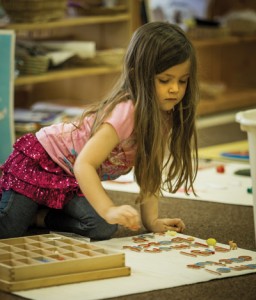 Why does Montessori have multi-age classrooms?
Why does Montessori have multi-age classrooms?
Because the learning is individualized, your child can work at her own pace while participating in a mixed age classroom community. Younger children benefit from example, and learn from the activities of the older children, while each older child gains the self-confidence that comes with responsibility and leadership.
Is the Montessori School of Celebration a religious school?
Our Montessori approach educates children in compassion, tolerance and empathy without reference to religious denomination. As a result, our classrooms are extremely diverse, with representation from all peoples, cultures and religions.
What extracurricular activities do you offer?
Our students take music lessons from Taiko Drumming instructors from Japan; physical education; yoga instruction; Spanish lessons, art class and Chess club.
Are Montessori children successful later in life?
Research studies show that Montessori children are well prepared for later life academically, socially, and emotionally. In addition to scoring well on standardized tests, Montessori children are ranked above average on such criteria as following directions, turning in work on time, listening attentively, using basic skills, showing responsibility, asking insightful questions, showing enthusiasm for learning, and adapting to new situations.
What’s the difference between Montessori and traditional education?
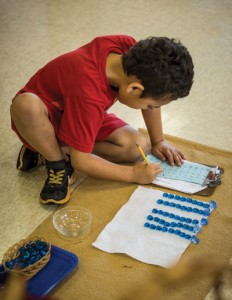 Montessori emphasizes learning through all five senses. Children learn at their own, individual pace and according to their own choice of activities from hundreds of possibilities. They’re not required to sit and listen to a teacher talk at them as a group, but are engaged in individual or group activities of their own, with materials that have been introduced to them 1:1 by the teacher. Montessori children learn to do independent research, arrange field trips to gather information, interview specialists, create group presentations, dramas, art exhibits, musical productions, science projects, and so forth. There’s no limit to what they can create with this kind of intelligently guided freedom. Students easily keep up with or surpass what they would be doing in a more traditional setting. There’s no wasted time as the core of work is done during the school day. Learning is an exciting process of discovery, leading to concentration, motivation, self-discipline and a love of learning.
Montessori emphasizes learning through all five senses. Children learn at their own, individual pace and according to their own choice of activities from hundreds of possibilities. They’re not required to sit and listen to a teacher talk at them as a group, but are engaged in individual or group activities of their own, with materials that have been introduced to them 1:1 by the teacher. Montessori children learn to do independent research, arrange field trips to gather information, interview specialists, create group presentations, dramas, art exhibits, musical productions, science projects, and so forth. There’s no limit to what they can create with this kind of intelligently guided freedom. Students easily keep up with or surpass what they would be doing in a more traditional setting. There’s no wasted time as the core of work is done during the school day. Learning is an exciting process of discovery, leading to concentration, motivation, self-discipline and a love of learning.
The traditional educational system was designed during the industrial revolution, when the masses moved into urban areas to work in factories. They created an effective method of training future generations of factory workers. Children were instructed to memorize and regurgitate facts – to stop working when the bell rang – to sit in nice, neat rows of desks and to ask for permission to move.
Our world doesn’t need more test takers, memorizers or followers.
Now, more than ever, we need critical thinkers, entrepreneurs and do-ers.
Montessori education prepares children to take on the future with confidence and zeal, propelled by the gift of self knowledge and a lifelong passion for learning.
This is education for our rapidly changing world.
This is education for the future.
This is education for life. ~ mariamonessori.com
Montessori School of Celebration
- 901 Begonia Road, Celebration, Florida 34747
- 407-566-1561
- www.montessoricelebration.com/future








